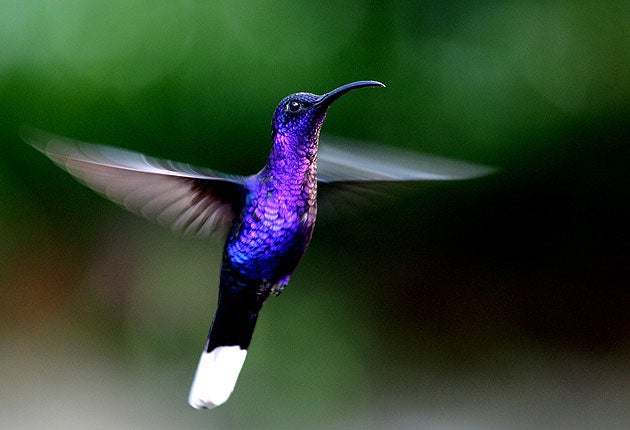Climate change 'threatens biodiversity in tropics'

Your support helps us to tell the story
From reproductive rights to climate change to Big Tech, The Independent is on the ground when the story is developing. Whether it's investigating the financials of Elon Musk's pro-Trump PAC or producing our latest documentary, 'The A Word', which shines a light on the American women fighting for reproductive rights, we know how important it is to parse out the facts from the messaging.
At such a critical moment in US history, we need reporters on the ground. Your donation allows us to keep sending journalists to speak to both sides of the story.
The Independent is trusted by Americans across the entire political spectrum. And unlike many other quality news outlets, we choose not to lock Americans out of our reporting and analysis with paywalls. We believe quality journalism should be available to everyone, paid for by those who can afford it.
Your support makes all the difference.Climate change may soon make the tropics too hot for many native species, which will be forced to head for higher ground to escape the heat, US researchers said yesterday.
The study suggests climate change is not only threatening polar bears and other cold-loving species. It is putting heat-loving species at risk as well.
"We know the climate is getting warmer," said Robert Colwell of the University of Connecticut, whose research appears in the journal Science.
"If things continue as projected, there will be a 3 degree Celsius (5.4 degree Fahrenheit) warming in the Costa Rican tropics within the next century," he said.
Colwell and colleagues predict that as the climate in the tropics warms, thermal bands will move up the mountains by about 600 meters (yards) in elevation. "The current climate at 100 meters will be at 700 meters," he said in a telephone interview.
Colwell and colleagues analyzed data on nearly 2,000 species of plants, insects, and fungi in Costa Rica. His team thinks about half of these species would have to move to completely new territory, well beyond the upper ranges on the mountainside.
"If species are stressed by the heat, they will do better in their accustomed climate zone. We expect ranges to move up the mountain as has been documented already in Europe and the United States," he said.
As a result, lowland populations in the tropics may soon experience decreases in biodiversity and species richness, in part because no other species are adapted to the climate.
And species at higher elevations may run out of room to climb higher.
Colwell said the projection contradicts the assumptions of many researchers, who believe species in the tropics would not be affected as harshly by climate change.
"The current conventional wisdom even among scientists is that tropical species will be OK despite global warming because in ancient times - 5 to 50 million years ago - the climate was warmer and there were tropical forests," he said.
"We argue this is not so clear. That there needs to be much more research done to see if this is the case," he said.
In a separate study in the same journal, researchers at the University of California-Berkeley compared recent changes in small mammal populations at Yosemite National Park in California to a study done in 1918.
Not surprisingly, they found mammals like shrews, mice and ground squirrels have moved to higher elevations or clustered themselves in smaller, more hospitable regions.
They saw shifts in about half the species studied.
So far, the population movements have not changed the biodiversity in the park, the researchers said, but they have changed the populations of animals interacting with one another.
"These kinds of changes in community composition have been going on forever," James Patton, who led the field work in Yosemite, said in a statement. "It is the speed with which these changes are taking place that gives one pause."
Join our commenting forum
Join thought-provoking conversations, follow other Independent readers and see their replies
Comments